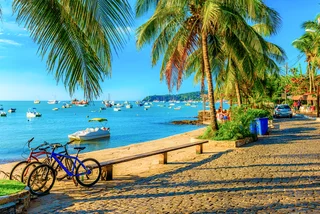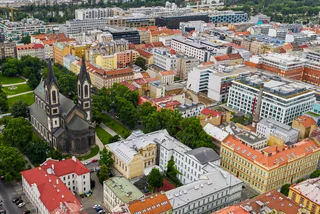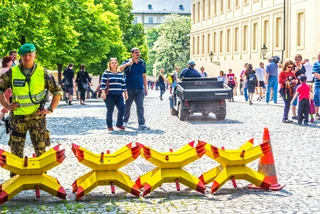In Prague’s Old Town just under 25% of apartments can be found on flat-sharing services such as Airbnb. Renting them out this way can bring the owner up to twice as much money as a traditional long-term rental.
According to
research by Deloitte, 24.8% of flats in Old Town are used for short
term accommodation arranged on a peer-to-peer (P2P) network, while in
New Town the figure is 16.3%, in Malá Strana 13.7%, in Josefov
12.2%, and in Hradčany 5.3%. The most common provider of such flats
is Airbnb, although there are several other similar services.
Of the 27,000
apartments located in Prague’s Old Town, New Town, Josefov, Malá
Strana, and Hradčany districts, 821 have been offered for long-term
rent, equaling 3% in recent months, while short-term accommodation
took up 4,770 flats, or 17.6%.
The original concept
of Airbnb was that people would rent out spare rooms. But it quickly
evolved to a situation where landlords bought multiple flats with the
sole purpose of renting them out to tourists. In total, in Prague,
80% of what is available on platforms such as Airbnb iswhole
apartments or houses, and not spare rooms, according to Deloitte.
The number of tourists coming to Prague has been increasing annually. In 2016, Prague saw 8.2 million tourists, which in 2018 rose to over 9 million tourists, and that is expected to rise to 11.4 million by 2025. These figures are higher than some other estimates but take into account visitors whose stays were not declared. The full-year population of Prague is only 1.3 million.
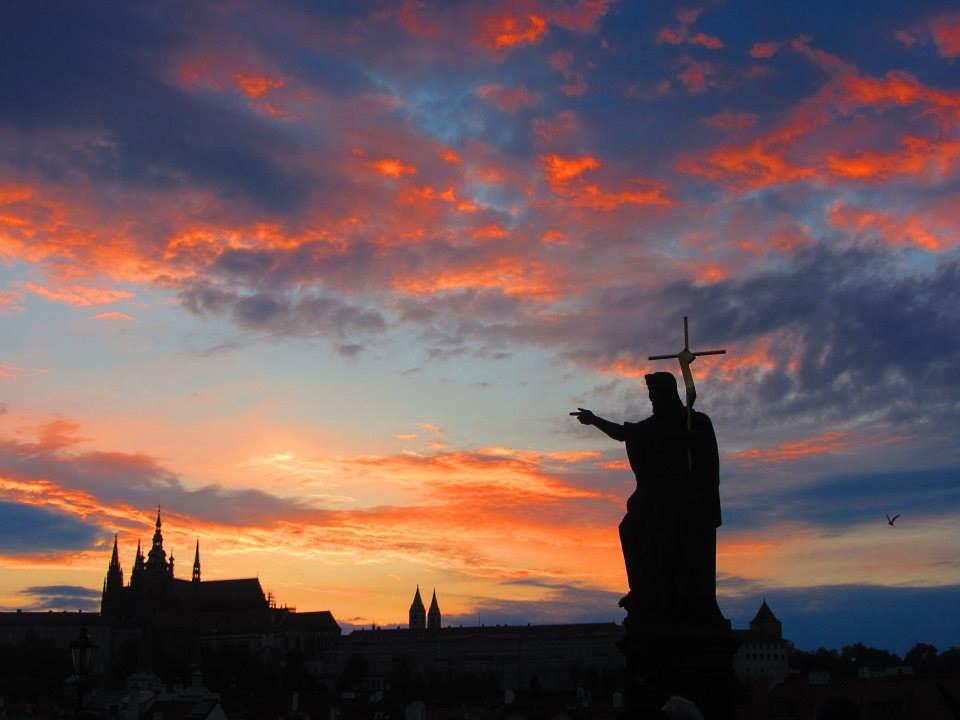
Overtourism is
boosted by an uncontrolled increase in tourist accommodation. Between
2018 and 2018, the number of combined hotel rooms and shared flats
increased by 12.5%. The growth was mainly due to shared flats, while
hotel space increased only slightly.
And Prague is not
alone. Vienna was up 16.3% and Budapest rose 14.8%, based on figures
from Euromonitor and AirOna. Both cities saw most growth from shared
flats, and Budapest even saw a 2% drop in hotel space.
Concretely, this
means 300,000 more people visit Prague every year, while new bed
capacities in hotels have increasing only slightly, by only 1.4
percent over the last two years. On the other hand, capacity offered
through accommodation platforms such as Airbnb increased by 34.1
percent over the same period.
PARTNER ARTICLE
The number of
available units in Prague offered through shared accommodation
platforms increased between 2016 and 2018 from 10,310 to almost
14,000 in 2018 in 2016. Last year alone, Prague estimated to lose
local tourism fees ranging from 88.5 million CZK to 124 million CZK.
Prague plans to increase the accommodation tax in the future. In
connection with this, it can be expected that the amount of
uncollected fees will further increase to more than 250 million CZK.
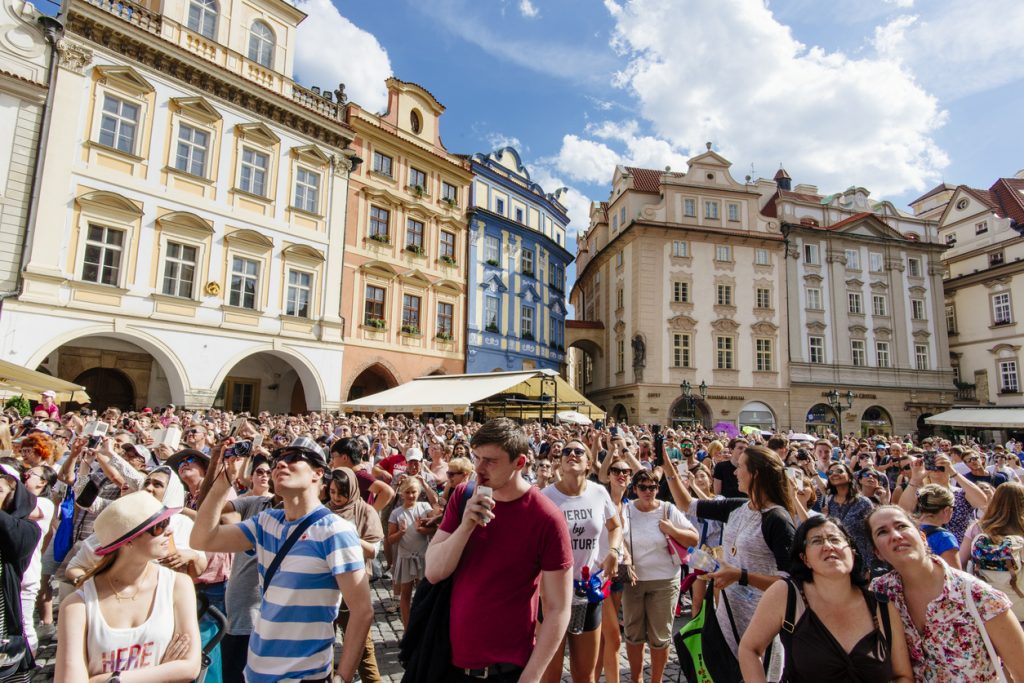
The rapid rise in
short term flats is due to them costing significantly less than hotel
rooms. The average price of a four-star hotel in the center of Prague
for two nights for two people during the weekend during November
costs on average 7,400 CZK including VAT, while a comparable Airbnb
flat will cost around 5,700 CZK, or a savings of 23%.
The number of flats used for short-term rentals has also led to a shortage of flats available for residents and an increase in both rent and sale prices for flats. And as the city center is now saturated with short-term rentals, the neighboring districts are now expected to become affected. Prague plans to build more affordable housing, and several neighborhoods such as Karlín,Smíchov and Nové Butovice are seeing significant private investment in housing projects, but these won’t be ready for several years.
“The prospect of
interesting earnings through short-term housing platforms pushes
people out of the city center. We expect this effect to continue into
the wider city center. The latest forecasts show that by 2025,
330,000 more tourists will come to Prague each year than the previous
one,” Miroslav Linhart, head of real estate department Deloitte,
said in a press release.
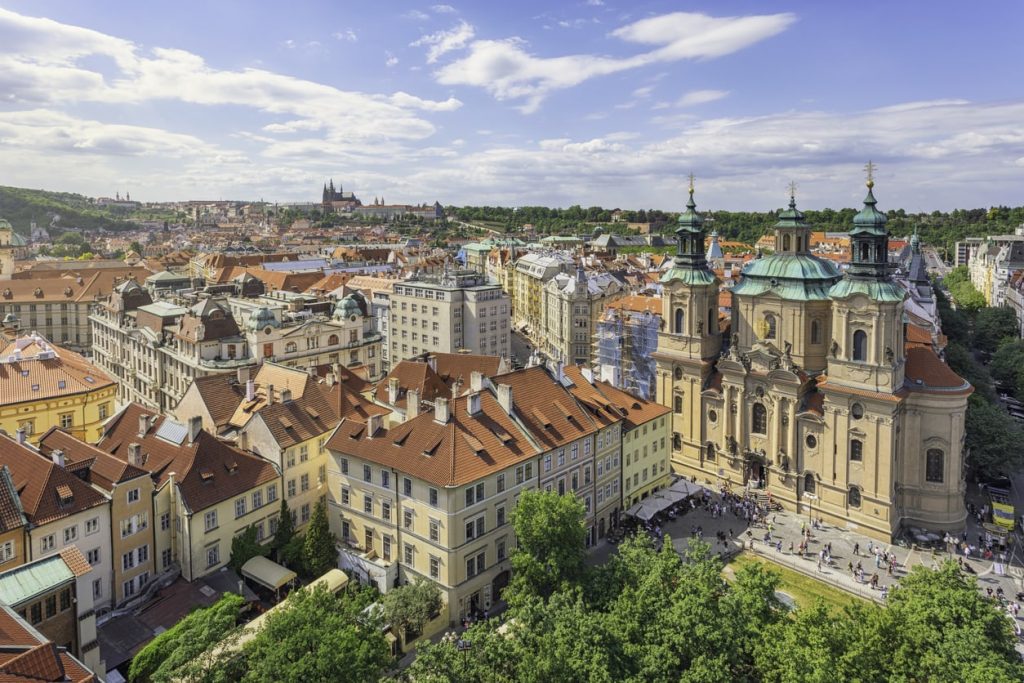
The city has been looking at ways to regulate such services, and also to ensure that the relevant taxes and fees are paid. Prague plans to increase the accommodation tax in the future. According to Deloitte, lost income to the city in unpaid fees in 2018 was between 88.5 million CZK and 124 million CZK. In 2021 it will be an estimated 250 million CZK.
Another Czech
tourist destination, Český Krumlov, now collects fees from
long-distance bus drivers who bring tourists to the city. Venice,
Italy, charges tourists a fee to visit the city and also limits the
number of large ships that can anchor nearby. But since Prague is
easily accessible from all sides, taxing tourists as they enter is
difficult.
The previous Prague
City Hall administration considered limiting the time that each flat
could be rented out to just a few months per year, requiring someone
to actually live in each flat and just rent spare rooms, or allowing
building societies to ban flats in communally owned buildings. The
only action take was to launch a website informing landlords of their
legal obligations.

Recently, Prague has been cracking down on key safes chained to public property, but this does little to address the overall problem.
Tourism has ups and
downs, and short-term rental flats can respond much faster to trends
than hotels. Switching a flat from family use to tourist use can be
dome rapidly at little cost, while building a new hotel or converting
an existing building takes several years and requires a lot of red
tape. By the time the hotel is finished, there could be a slump again
in tourism.
Hard Rock International and EP Real Estate just announced the construction of a hotel in Prague’s Letná district, but it won’t open until 2023.
But Deloitte see
more hotels as part of the solution. “Unfortunately, the growth in
tourism and the popularity of shared platforms have negative effects
on the city or parts of it, as well as on the local property market.
Legislation and local government are responding slowly to all this.
The response could be not only possible regulation of shared
accommodation, but also a new offer from hotels, which would increase
the flexibility of the market,” Petr Hána, Senior Property Manager
at Deloitte, said in a press release.
Airbnb was first
introduced in the Czech Republic in 2009. Apart from Airbnb, there
are also other services available on the market such as Flipkey,
HomeAway, House Trip, Vacation Rentals or Vrbo.












 Reading time: 5 minutes
Reading time: 5 minutes 







